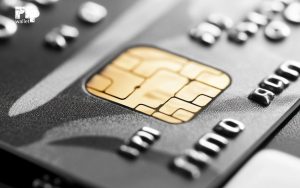MStable is a stablecoin infrastructure that is autonomous and non-custodial and was created to give decentralized finance platforms and protocols a foundational collateral protocol upon which to build DeFi apps.
Noncustodial stablecoins are digital assets whose private keys to wallets are entirely under the control of their owners, without the need for a middleman. Each meta-asset is a crypto asset with a pegged value and denotes a liquidity stake in the underlying asset pool. The noncustodial MStable smart contracts are also used to mint or redeem these assets on-chain.
With the help of the MStable protocol, stablecoins, lending, and swapping are all combined into a reliable standard, creating a stablecoin infrastructure where users can save, trade, and earn. The MStable (MUSD) stablecoin infrastructure also provides a base layer collateral mechanism for the development of DeFi applications and the production of meta-assets, which are fully backed by a diversified portfolio of existing tokenized same-base assets.
To offer stablecoin solutions on the Ethereum blockchain, MStable is a decentralized finance (DeFi) initiative. MUSD is the name of one of MStable’s stablecoin products.
MUSD is an MStable asset (mAsset) supported by a collection of USD-pegged stablecoins that includes the following features:
Deep liquidity pool for a stablecoin exchange with low slippage.
Mintable by and redeemed for a certain underlying asset or group of assets
A native interest rate that is low risk and offers a high yield by combining loan revenue and trading commissions.
MUSD, a synthetic asset stands in for a variety of other stablecoins. It is intended to offer consistency and retain a stable value throughout time. MUSD’s basket composition includes several stablecoins, including DAI, USDC, and USDT. MUSD intends to reduce problems connected to a single stablecoin, such as counterparty risk or regulatory concerns, by merging various stablecoins.
Users that deposit mBTC or MUSD into MStable’s Save Contract will receive a native yield from the MStable assets they have purchased. In contrast to mBTC, which is a cryptocurrency asset tied to the price of bitcoin and supported by a tokenized bitcoin pool on the Ethereum network, MUSD is launched by MStable as the first meta-asset built of USD stablecoin assets. The Save Contract non-custodial savings account from MStable is intended to be a convenient and dependable way to earn interest on pegged-value crypto assets.
Smart contracts are used by the MStable protocol to control the issuance, redemption, and upkeep of MUSD. By putting one of the supported stablecoins into the protocol, users can mint MUSD. They receive an equivalent amount in MUSD tokens in return. These coins are freely usable and can be traded, transferred, or exchanged on several decentralized exchanges.
Meta is the governance token of the MStable protocol. Holders of Meta tokens have voting rights and can participate in the governance and decision-making processes of the MStable ecosystem. They can propose and vote on changes, upgrades, and improvements to the protocol. Meta token holders also have the opportunity to earn rewards through protocol incentives and participate in the staking and liquidity provision mechanisms.
Who are the founders of MStable (MUSD)?
James Simpson and Henrik Andersson are the creators of MStable.
What is MStable (MUSD) used for?
MStable and its stablecoin MUSD offer several potential benefits and use cases within the decentralized finance (DeFi) ecosystem. Here are some of their potential usefulness:
Yield opportunities: MStable makes use of opportunities for yield with its Save feature. Users have the option of putting their MUSD into the mStable Savings contract and earning yield on their investments. The system collects lending platform yield and distributes it to savers, enabling them to profit passively from their stablecoin holdings.
involvement in governance: MStable offers a token called Meta for involvement in governance. The ability to take part in the management of the MStable protocol is provided to users who hold Meta tokens. The future growth and direction of MStable are shaped by the votes cast by token holders on protocol proposals, upgrades, and revisions.
Liquidity: The easy trading of MUSD on decentralized exchanges gives consumers access to liquidity and flexibility in their financial dealings. Peer-to-peer payments, remittances, and stable mediums of exchange inside the DeFi ecosystem are just a few uses for it.
Multiple stablecoins are included in the basket composition of MUSD, which benefits from diversification. Users can indirectly possess a diverse portfolio of stablecoins by holding MUSD, which lowers their exposure to the hazards of anyone stablecoin.
Stability: The MUSD is made to be stable and to hold its value over time. MUSD attempts to reduce risks connected to a single stablecoin, such as counterparty risk or regulatory concerns, by integrating many stablecoins in its basket composition. Within the erratic cryptocurrency market, it provides consumers with a steady and trustworthy unit of account.
How is MStable (MUSD) unique?
MStable offers several unique features and characteristics that distinguish it from other stablecoin projects in the decentralized finance (DeFi) space. Here are some of the key aspects that make MStable unique:
Stablecoin basket: MUSD is a stablecoin that acts as a proxy for a collection of other stablecoins. MUSD mixes numerous stablecoins, including DAI, USDC, and USDT, as opposed to conventional stablecoins, which are backed by a single asset or currency. The MUSD token is more stable and resilient as a result of this basket composition’s contribution to risk diversification and less exposure to any one stablecoin.
Autonomous asset management: To keep the MUSD stable, MStable employs autonomous asset management techniques. The protocol uses rewarded arbitrage and automated rebalancing to maintain the MUSD price near its target level. By taking an independent stance, MUSD can sustain its stability without depending on outside sources.
Interoperability: MStable is made to work with different DeFi platforms and protocols. Utilizing its reliability and liquidity, users may easily incorporate MUSD into other DeFi applications and services. The usability and use cases of MUSD inside the larger DeFi ecosystem are increased by this interoperability.
Yield opportunities: Through its Save feature, MStable offers users options for yield. Users who have stablecoins can generate passive income by depositing MUSD into the mStable Savings contract. Savers can earn interest on their accounts thanks to the protocol, which combines returns from lending sites.
Governance token named Meta: MStable has a governance token by the name of Meta. Owners of Meta tokens have the opportunity to directly influence the protocol’s decision-making. They are allowed to vote and offer amendments, staking, liquidity mining, updates, and enhancements to the MStable environment. Decentralization and community-driven governance of the platform is made possible by the addition of a governance token.
MUSD is a more abstract and secure representation of USD on a chain since it is a representation of the stablecoins that underlie it. Any whitelisted USD-pegged stablecoin may be used to mint and redeem it via the MStable smart contracts. A further distinctive feature of MUSD is that it provides some of the finest risk-adjusted saving APYs in DeFi. This APY derives from swap fees, lending income, and liquidated tokens farmed by the MStable contracts, among other sources. A wide range of stakeholders participate in the governance of MStable and join together to share opinions and vote on proposals that would enhance the MStable protocol.
How many MStable (MUSD) coins are in circulation?
3.86 Million MUSD are in circulation right now.
How is the MStable (MUSD) network secured?
By utilizing the Ethereum blockchain’s consensus algorithm and decentralized nature, MStable secures its network. The use of smart contracts that adhere to industry best practices and go through rigorous auditing ensures the stability and security of the network. Holders of Meta (MTA) tokens are involved in the governance process of MStable and actively participate in decision-making and protocol update proposals. This decentralized form of government encourages openness and diversity. The network’s security posture is further improved by routine security audits and assessments, which find weaknesses and reduce threats. The MUSD currency provides stability and diversification by mixing several stablecoins. MUSD’s universality enables easy integration with several DeFi applications. In the end, even though these safeguards help to keep MStable secure, users should use caution and adhere to recommended practices when interacting with the protocol or any other DeFi platform.
How do I buy MStable (MUSD)?
The MUSD token can be used for a wide range of purposes, like staking and payments.
MStable (MUSD) tokens can be easily purchased by following the steps below.
* Open an account with the crypto trading platform of your choice.
* Transfer the specific amount of your fiat currency to your account.
* Wait for your deposit to be confirmed and buy CNS through your trading account by swapping with BTC, ETH, or USDT pairs.
Which Cryptocurrency Wallet Supports MStable (MUSD)?
The PTPWallet platform supports many cryptocurrencies, with MUSD soon to be included. Because of its vast use case, PTPWallet has grown to become one of the most popular platforms, as it serves as an exchange and an engine to discover other cryptocurrencies. The platform has a simple user interface, is compatible with both Android and iOS devices, and includes a mobile wallet app.
If you’re looking to learn more about PTPWallet and stay updated on our latest news, be sure to follow us on our social media accounts. You can find us on our channels.
Telegram: https://t.me/ptpwalletnews
Twitter: https://twitter.com/PtpWallet



